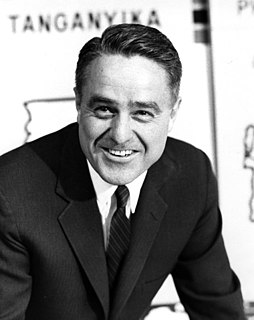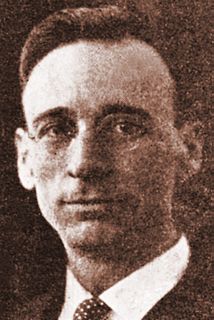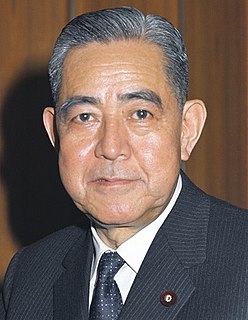A Quote by Mary Parker Follett
We have thought of peace as passive and war as the active way of living. The opposite is true. War is not the most strenuous life. It is a kind of rest cure compared to the task of reconciling our differences ... From War to Peace is not from the strenuous to the easy existence; it is from the futile to the effective, from the stagnant to the active, from the destructive to the creative way of life ... The world will be regenerated by the people who rise above these passive ways and heroically seek, by whatever hardship, by whatever toil, the methods by which people can agree.
Related Quotes
The cure is care. Caring for others is the practice of peace. Caring becomes as important as curing. Caring produces the cure, not the reverse. Caring about nuclear war and its victims is the beginning of a cure for our obsession with war. Peace does not comes through strength. Quite the opposite: Strength comes through peace. The practices of peace strengthen us for every vicissitude. . . . The task is immense!
I wish to preach not the doctrine of ignoble ease but the doctrine of the strenuous life; the life of toil and effort; of labour and strife; to preach that highest form of success which comes not to the man who desires mere easy peace but to the man who does not shrink from danger, from hardship, or from bitter toil, and who out of these wins the splendid ultimate triumph. A life of ignoble ease, a life of that peace which springs merely from lack either of desire or of power to strive after great things, is as little worthy of a nation as of an individual.
I don't think there's any way that war can have a place in peace. I think that peace is the active and difficult resistance to the temptation of war; it is the prerogative and the obligation of the injured. Peace is something that has to be vigilantly maintained; it is a vigilance, and it involves temptation, and it does not mean we as human beings are not aggressive. This is a mistaken way of understanding non-violence.
The twentieth century had dispensed with the formal declaration of war and introduced the fifth column, sabotage, cold war, and war by proxy, but that was only the begining. Summit meetings for disarmament pursued mutual understanding and a balance of power but were also held to learn the strengths and weaknesses of the enemy. The world of the war-or-peace alternative became a world in which war was peace and peace war.
So a war begins. Into a peace-time life, comes an announcement, a threat. A bomb drops somewhere, potential traitors are whisked off quietly to prison. And for some time, days, months, a year perhaps, life has a peace-time quality, into which war-like events intrude. But when a war has been going on for a long time, life is all war, every event has the quality of war, nothing of peace remains.
Peace is a condition of the heart. It's a state of mind, of tranquility, of calmness, and of centeredness. It's an understanding of the reciprocal nature of love, a presence, a journey. It's all of our aspirations. Peace is not a luxury or merely the absence of war, it's a kind of grace - which we're all entitled to as people who are alive. Peace is an active presence of the capacity for a higher evolution of human awareness.
There is a certain kind of peace that is not merely the absence of war. It is larger than that. The peace I am thinking of is not at the mercy of history's rule, nor is it a passive surrender to the status quo. The peace I am thinking of is the dance of an open mind when it engages another equally open one -- an activity that occurs most naturally, most often in the reading/writing world we live in. Accessible as it is, this particular kind of peace warrants vigilance.
It seems to me an utterly futile task to prescribe rules and limitations for the conduct of war. War is not a game; hence one cannot wage war by rules as one would in playing games. Our fight must be against war itself. The masses of people can most effectively fight the institution of war by establishing an organization for the absolute refusal of military service.































